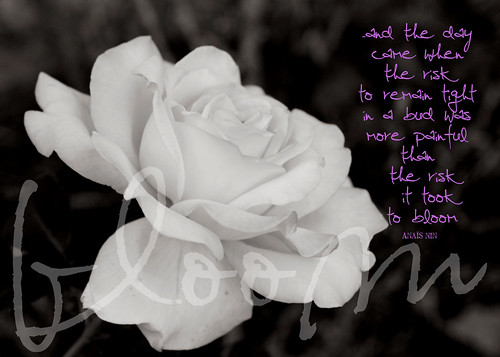After reading a great post today, How to Connect the Dots, from Brett Clark, I ended up on a post from Tom Whitby which really got me thinking about this question, How do educators get to what they don't know?
This overarching question, how do educators get to what they don't know, is a challenging one. I think of the phrase "you don't know what you don't know," and wonder how do we move beyond it? I feel I did move beyond it because I felt stagnant in my trajectory as a teacher and knew there had to be more I could, and should, be doing. But how is this accomplished when teachers may be complacent, simply because they don't know what they don't know?
The model of Flipped PD that I've implemented within my school has been one way to bring this overarching question to the front of our minds- mine included. One hour a month of face to face time, with consistent and personalized support in between meetings, has provided the time for teachers to think, to consider, to wonder, to dream-- what don't I know, how else can I do this, what do my students need, how can I cultivate this...
How do we get educators to what they don't know? I know now it goes slowly, with caution and regard for their experience, comfort level, and personal and pedagogical beliefs. It's about building relationships and trust so that the unknown doesn't seem so isolated and scary, when impending observations loom. It takes time, a lot of time, maybe more time than I ever imagined. Consistency, encouragement, celebration and reflection are so important along this journey.
I think now, getting to what they don't know is not simply about a piece of technology, or starting a class blog, or using the online features of the science curriculum. It's about getting to know who we are as educators and truly what we believe about teaching and learning, beyond that philosophical paragraph on the parent welcome letter at the start of school. It's the shift to not only student centered, but learning centered classrooms. We're changing our school culture through collegial conversation that is deep, challenging, and meaningful.
I didn't know how this model would work or IF it would work, so for me, getting to what I didn't know meant simply to try, and not give up on my teachers no matter their fears, resistance, or struggles. Growth, change and progress take time, as does learning. Looking back over the first few months of this journey, I'm awed and inspired by the goals and projects which have tremendously impacted student learning in my school. We have momentum and I believe this momentum will continue to inspire teachers to question, wonder and seek out what they don't know. My calendar and to-do list are there to support them all along the journey.









